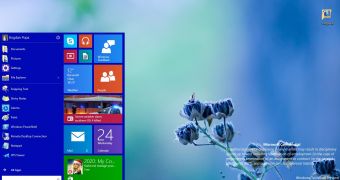One of the most important information regarding Windows 10 that surfaced recently is that the system will be a free upgrade from Windows 7 upwards. It might seem important, but the truth is that the fact that it costs money is the least of its problems. The problem is that it's a very unsafe system and problems are fixed very slowly.
Parallels are always drawn between Linux and Windows. Sometimes with good reason and other times not. One of the prevailing public themes that have been dominating the public agenda lately is security and vulnerabilities. These are facts of our everyday lives and they affect all operating systems, whether we're talking about Linux, Windows, or Mac OS X.
There are so many packages involved in the proper functioning of an OS, that it's bound to have issues. Some are found and fixed and others can remain hidden for years. There are even some problems that can affect all systems, like the one with OpenSSL. It's impossible to tell if any major issues are still hidden in code or if we're lucky and they all have been dealt with.
It all boils down to open source
A lot of users in the Linux community have said that the fact that Microsoft made Windows 10 a free upgrade will push a lot of people to that particular platform. Also, some of them felt that Linux missed its opportunity of seizing market share after the semi-failure of Windows 8 to attract new users or even the old ones.
But this is actually irrelevant for Linux in general. First of all, Linux doesn't really care what Microsoft is doing and it’s powering on. There is no marketing strategy, no hidden interest, no shadowy figures trying to steer Linux in various directions. Most of the developers in the Linux ecosystem are trying to do the best they can, and they usually do it so that people can have the results of their work for free.
Even if Microsoft were to offer Windows at no cost to new users, Linux would still remain in place. This is because the problems with Windows are not about the money. The fact that it's not open source is its biggest disadvantage and it creates two major problems.
Bug, exploits, and vulnerabilities are unknown
All the development for the operating system is happening behind closed doors. Everything is proprietary and no one can tell just how secure the system is. The company releases patches from time to time, fixing stuff, but the list of things to solve could be a mile long. No one really knows.
Bug, exploits, and vulnerabilities take a long time to get fixed
We recently encountered a very interesting piece of news about an exploit for Windows systems that would only require the attacker to change a single bit. The exploit was possible because of a bug that was signaled months ago. Also, the exploit had been present there for years. Microsoft has just announced a patch for it, which is actually kind of worrying.
Linux is not perfect, but it's much safer
No one is saying that Linux is a perfect OS. It's not. It has its share of problems, which are fixed on a daily basis. The difference is that everyone knows when a problem is found and all of the big operating systems in the Linux ecosystem are patched immediately after a vulnerability is found.
Which brings us to developers. Many of these issues are found by people who are not necessarily looking for them or that might not even be directly involved, but the fact that it's open allows anyone with a particular expertise to fix something and to let anyone know that a fix is available.
We can put everything aside when it comes to comparing Linux and Windows, with the exception of security. Sure, there are other things that we can talk about, like stability, performance with certain hardware, and many more other features, but when you draw the line, you have to ask yourself: What do I want? Do I want a system that is controlled internally by a few hundred people or do I want an OS that is open to review and modifications from basically anyone?
It might feel like it's the users' choice, but it's not really a choice under the current circumstances.

 14 DAY TRIAL //
14 DAY TRIAL //